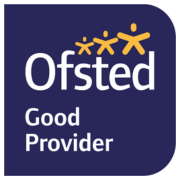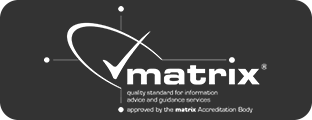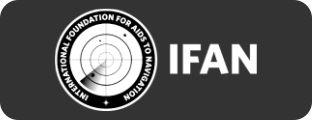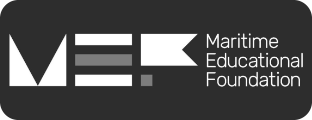Coming Ashore Podcast Episode 9 - About the Mentor Simon Jones
Posted on 21 May 2020 by Andrew Cowderoy
On Episode 9 of the Coming Ashore podcast, Andrew Cowderoy is joined by Coming Ashore mentor Simon Jones.
Would you rather listen? Listen on Spotify and ITunes. Or watch on Youtube.
Click here to find out more about the Coming Ashore programme. Where you'll find professional guidance, mentorship and work experience opportunities for transitioning to a career on land.
Andrew Cowderoy:
Hello, ladies and gentlemen, and welcome to another episode of the Coming Ashore podcast by the Marine Society. My name is Andrew Cowderoy, the host and on today's episode, I'm thrilled to welcome a special guest, one of our mentors on the program, Simon Jones, who's going to share with us his experiences of life in the maritime industry, both at sea and now on shore, his process of coming ashore and dive into some of the mentorship side of things too. Thank you very much, Simon, for joining the show.
Simon Jones:
Thank you for having me, Andrew. Good morning.
Andrew Cowderoy:
Good morning. Now, Simon, obviously we're talking maritime. Can you share with our colleagues around the world and at sea and on shore, why maritime and why a career at sea?
Simon Jones:
Yeah, surely. So, my father and my brother are both master mariners. It was almost like a family trait in the end. I started back in 2000, I think it was, with Clyde Marine Training in Glasgow, and they seconded me to my first company, which was Gearbulk, and I went through the standard cadetship there. So, I guess it was seeing my father go through that life, and then obviously, my brother went through that life. I thought it was just a good thing for me to do, and obviously, share in their experiences of what they had. It seemed rather interesting, and it was a good way of seeing the world at such a young age. Growing up on an island as well, it was always the dream to get off the island, and what better way to join the sea and get paid for it and go around the world?
Andrew Cowderoy:
Yeah, absolutely. It's why many people will still today be interested in a career at sea, is that opportunity to see the world, and what a great company, Gearbulk, to do your cadetship training on. Can you share how long were you at sea for, and sort of explain about your career at sea, and the ranks that you grew through?
Simon Jones:
Yeah, surely. So, I joined when I was 16, and then shortly after during the first phase in college, when I was 17 years old I went away to sea. And the way the college phases worked back then, I'm not sure if they're still the same. You do a spell in college, and then there's about eight to nine months of sea time or seconded to sea time. When I went away with Gearbulk the first time, my trips were ranging from four to five months for the first trip. But then, you'd have two weeks at home, and then you'd be away again, almost right up until a week before you were due back to go to college.
So, in that sense, being that young, it was pretty tough to be honest. But again, seeing the world, getting insights to the industry, and especially with Gearbulk because of the variety of cargoes that they used, certainly it helped me throughout the rest of my career, especially for the chief mate's exam when you go more deeper into bulk cargoes and general cargoes as part of the coursework. During college, I also met my wife. I qualified in 2003 or 2004, I think it was. Gearbulk had the standard thing back then, it was four months on, four months off. So, that was good at the very start, and then obviously, the wife and I progressed to getting married and then thinking about kids, I decided that being four months away at times is not really good, and it would put stress our relationship.
So, I made the decision then to start looking towards going to somewhere with better trips, months off, two weeks on, and I ended up with NorthLink Ferries, out of Aberdeen sailing to Orkney and Shetland. I then had to start at the very beginning, because I had no experience with rotor passenger ferries. I did some time free of charge with the ferries, just to get some expedience, and then made the cross over to the ferries, and started there as third mate. And over seven years, progressed up to chief mate level with NorthLink Ferries.
And then, around 2013, I got a job offer to go work with a cable company, Prysmian Group, which I took on when I crossed there and progressed up to master with them. Following that, I decided for the first time to come ashore and to go work with Petro Park Marine Service out of Aberdeen, which was consultancy stuff, advising to oil and gas industry clients. I stuck with that for about a year and then decided that I wanted to go back to sea. By then we'd had our second child. I was seeing less of them, I think it was then when I was actually at sea that I decided to go back to Prysmian and I stayed there until October last year, where the decision was made that I had my master’s ticket and I started to look towards coming ashore again.
So, I made that decision probably a year to a year and a half prior to coming ashore in October. From there I started networking with all the consultancy and agencies, doing ad hoc work for them when I was on my leave. I started with Maritime Assurance and Consultant in Aberdeen, probably known as MAC. In October I started as senior marine consultant and basically worked a lot and recently got promoted to principle marine consultant and that's where we are today.
Andrew Cowderoy:
What a great story. And not many people who go through the process of coming ashore twice. Jumping back to when you first come ashore and you started working for Petro Park, when you made that decision to come ashore, did you have a strategy, did you have a plan, a process in place that you were sort of going to follow, or was it more I'm going to just come ashore and we'll figure it out from there?
Simon Jones:
Yeah, I think it was just dipping a toe in the water, and I thought this could be nice, because we had our second child at that stage, which was only a couple months old. I made the decision after missing not a lot, but a substantial amount of our first child's first few years, that I'd try and get ashore again and try and build up that family atmosphere again. But unfortunately, as I said, it put more stress on me with the hours I was working. I think it was more the difference of it, of being so different after having a life at sea and making that change and then thinking this isn't really for me and having that doubt. The stress I was putting myself through, as well as the family of me humming and hawing of whether or not this is right. Really there was no plan at first. And that plan developed over the years to this plan, so I actually thought about it and took the bad and the good things and tried to improve the bad things from my first time ashore to implement in my second time coming ashore.
The plan wasn't there at first, but it certainly developed over the next few years before I came ashore in October.
Andrew Cowderoy:
Sure, and now jumping to that transition ashore, that career change when you come ashore and joined MAC, you said the process took a year did you plan to take such a long time to prepare to come ashore?
Simon Jones:
Yeah, well essentially, especially in Aberdeen it's very hard to get into these consultancy firms and picking the right one is essential due to the ever changing market within the oil and gas industry. I wanted to be sure that I was picking the right company, and that I was happy with who I was going to choose in the end. That's why I basically built up a CV, I made myself more vocal within LinkedIn developing that network, and basically doing face to face meetings with whoever would actually have me, to develop that relationship with the clients. And from there it was doing the work as well and doing different types of work to say ok, maybe I'd like to go into this industry more, or I'd like to try this type of consultancy. And I was pretty sure that Maritime consultancy was what I wanted to go into, and it took that long, because again I was apprehensive to make that decision about coming ashore again because both in my mind and my wife's mind was the fact that this happened the last time. It was a big step, but I got to the stage where I came around, and then my wife's thinking came around and we decided this is the right step, let's do it.
Simon Jones:
So, it didn't take long from when I actually said this is what we're going to do and I put out my CV and the offers started coming in, which was good.
Andrew Cowderoy:
Sure, I mean you really built up, to sort of just reiterate it in a nutshell. Spend that time, one making sure it was the right choice, that this is something you really wanted to do, and finding the role that you wanted to do versus let's just run ashore and see what comes our way, and then once you found that sort of role as it were within consultancy, that you then positioned yourself in the best place possible, so while actually on the outside stepping onshore could be seen as a big step, actually the step was perhaps slightly smaller because you had put in the ground work beforehand for over a year and I think it's quite important for our listeners to take note. Is that to get to that position it does take time, it's not a quick fix, and you get into a position where you are where you're now actually very happy. You raised up the ranks fairly quickly. To do that, you need to put work in beforehand.
Simon Jones:
Yeah, just to reiterate that point people say it's very easy to make that step, but again it's developing that groundwork, it's putting in, it's interfacing with clients, even if it's just a coffee with certain people just to discuss things, you might have friends, especially in Aberdeen it's a very small maritime community, everybody knows everybody, and it's just having a coffee with a person and saying look this is what I plan to do and getting their advice. People who are long term within being ashore as well and saying I plan to do this, what do you recommend? Definitely developing a relationship with people ashore is a really important point as well.
Andrew Cowderoy:
Absolutely, and I think that goes for the entire maritime industry, is we one, are very friendly. From the outside it might seem slightly scary when you're coming ashore, but it's really not. And to ensure that sort of relationship build, it's how the industry ran 10, 15, 20, 30, 50 years ago and it's still the same methodology. Build the relationships for a long and prosperous career in maritime.
Simon Jones:
Yes, absolutely.
Andrew Cowderoy:
Very, very useful. Now today, I think you mentioned sort of, could you share with us your mentorship role, why you're perhaps interested in the Coming Ashore program, and what you could perhaps bring and support for those seafarers who are considering a career change.
Simon Jones:
Yeah, absolutely. I may as well mention the Honourable Company of Master Mariners at this stage, I went through a mentorship program. I started as an apprentice in 2002 with the Honourable Company of Master Mariners. When you start as an apprentice, you get assigned a mentor. I've been on both sides with this, I got mentored by both my father and my assigned mentor with an Honourable Company, and as soon as I got my master's license I went straight back to the Honourable Company and said look, I would like to join the mentorship program to give a little bit back, because they supported me through my career and I thought I'd like to do that.
So far I've had two apprentices to mentor. One of which unfortunately due to health issues had to leave the sea, the other one just now I'm still mentoring at the moment, and he's actually working with me at MAC. That was just because he was unable to get a job at sea, so I thought I ... Well, I haven't made the decision, I gave him the option of basically instead of working at sea, we'll get you on this side, build your knowledge and then go back out. I was made aware of this Coming Ashore program back when it was first started by the Honourable Company, and to me it was interesting and it's a way to help my colleagues, let's call them that. Everybody's a colleague within the Maritime Industry and I thought it a good way of giving back and helping people make the transition, since I had the experience of doing it not once, but twice.
And I know how hard it is. Any help I can give to people wanting to make that transition I’ll do my utmost to help them with it.
Andrew Cowderoy:
And for those seafarers who are listening at sea, around the world, or at home in isolation, firstly what advice would you, I mean we live in a very different time at the moment for those who are listening we're in the heart of the COVID-19 lockdown in the UK, no businesses running. And globally too, no one's really leaving their homes. Everybody's working from home in today's environment, with the experience that you've gained, what are one or two tips that you would give a seafarer who is considering a career change?
Simon Jones:
Well, at the moment I would say it's a very changing market and I don't see how when we do come out of this, how the market is actually going to be. We've seen in the news about certain companies not able to support themselves anymore and close them down, and I would probably say at the moment, I would hold off until what happens after this, because again we don't know how the markets going to be, whether jobs will be available ashore, because a lot of people might decide to give up the sea after this and actually come ashore themselves, which again could cause an influx of people wanting to come ashore, which will make it harder for those who are say very young age, not relatively experienced wanting to make that transition ashore. It could become quite hard at the moment. That's one thing. Again, all it takes is a chat with somebody just to see, you know contact these companies. If you got friends within them as well, just have a quiet chat and just say how are you guys faring, this what I'm planning to do, what's the markets like, go along that route I’d say.
Andrew Cowderoy:
And I think I'd add to that, as there's a degree of uncertainty of where we are at, and living in a hugely digital era where we're having this Zoom podcast between Aberdeen and London, is to use this as an opportunity to enhance one’s online profile. So, when that time does arrive to come ashore, you're putting yourself in the best position possible and you're building up, even if it isn't for a year or so contract or two, however long. That you are putting yourself in that best position and that's why we are here to support that on the Marine Society.
And finally, so aware of time of our listeners and yourself, something different. What message would you give to our seafarers who are at sea today? Not related to the coming ashore program. If you'd like to send a message out to our colleagues at sea.
Simon Jones:
Yeah, just generally say stay safe in the moment. There's a lot of guys who are going to different parts of the world, where the outbreak may not be as contained as it were, so just take all precautions and keep up the good work as we posted online though the Honourable Company, you're there to help us, and we really appreciate it.
Andrew Cowderoy:
Thank you very much Simon. And we are here to help you. As Simon say, stay safe, stay healthy and when you are considering a career change coming ashore be sure to visit the Coming Ashore website, register your interest, listen to all the podcasts, where there are amazing mentors who span the entire industry. Join the private LinkedIn group and learn more to put yourself in that best position possible. Be sure to register to YouTube, Spotify, iTunes on all channels for the podcast and videos. Check out us on the website and if you feel free connect with both Simon and myself. We're here to have a chat. Thank you very much for listening. Have a great day, my name's Andrew Cowderoy.
This podcast was presented by the Marine Society. If you want to find out more about the coming ashore project, be sure to subscribe to the channels podcast on YouTube, Spotify, iTunes. Visit us on Instagram, Twitter, Facebook, LinkedIn, or visit the Marine Society website.
For more information on the Marine Society's Coming Ashore program, including information on mentorship, please visit our Coming Ashore page.





